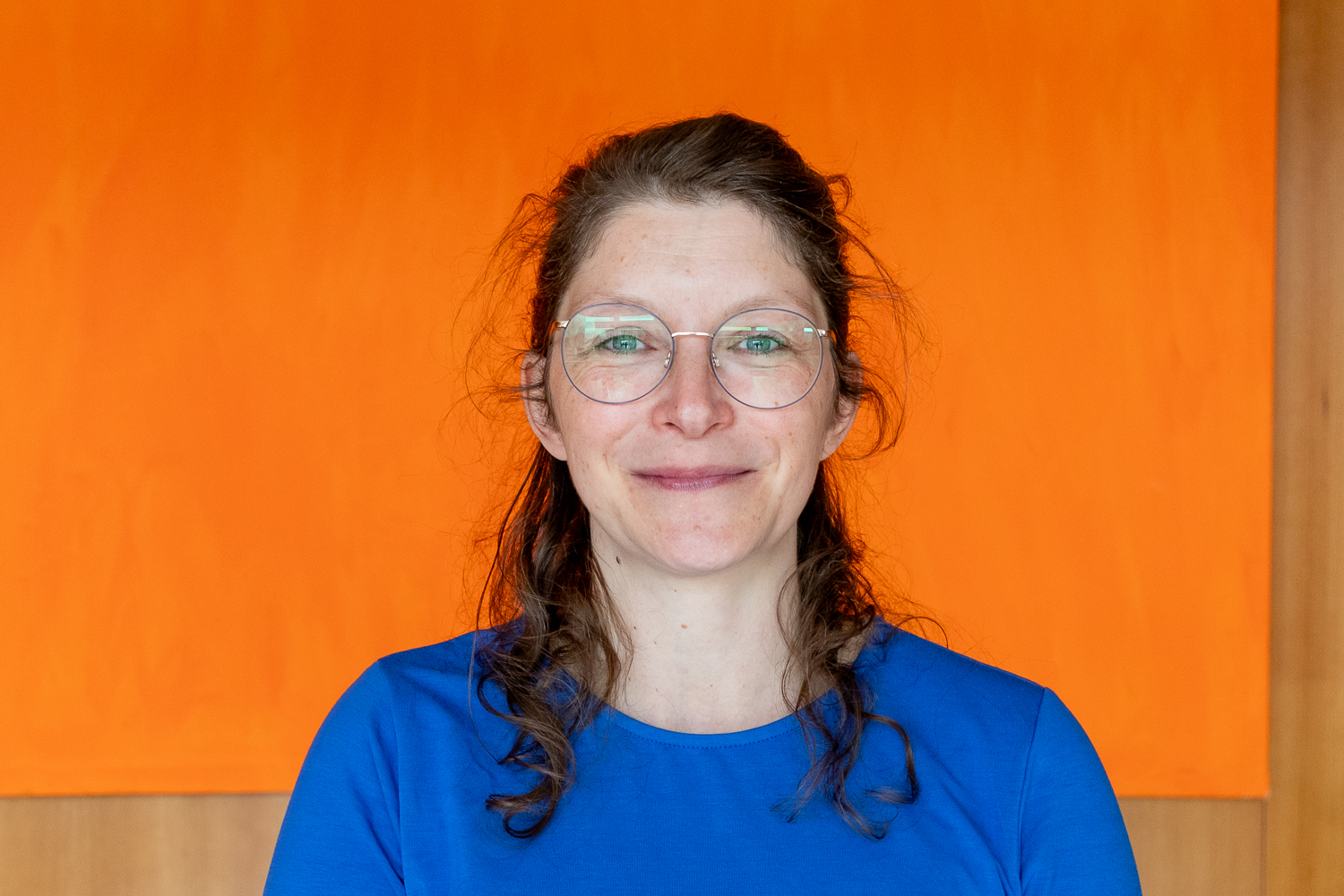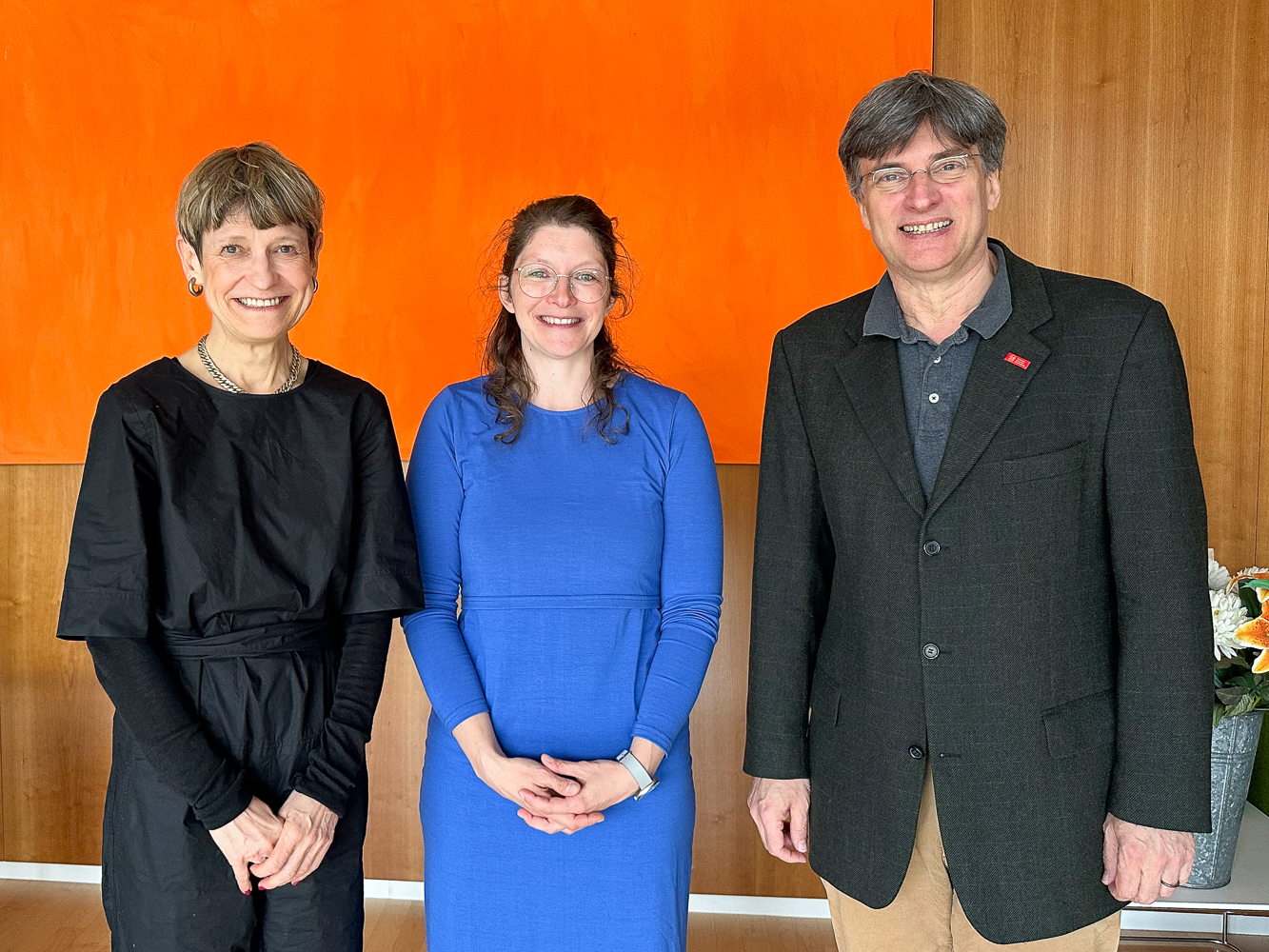“Better assessment of the health effects of processed foods” Jana Raupbach is assistant professor at the Institute of Food Chemistry
Following her research at the German Institute of Human Nutrition in Potsdam-Rehbrücke, she was appointed assistant professor at Technische Universität Braunschweig in April 2024: Jana Raupbach researches factors that influence human digestion. Both food-related factors and human factors such as age, gender and state of health play a role. What makes her work particularly exciting is the interdisciplinary approach. Here she answers our questionnaire.

Assistant professor Dr. Jana Raupbach. Photo credit: Asmik Kostandian/TU Braunschweig
Why did you choose TU Braunschweig?
On the one hand, objective factors played a role in the decision: Braunschweig is one of the most research-intensive regions in Europe, and food chemistry has a tradition of more than 100 years at TU Braunschweig. The existing network of research institutions such as the Deutsches Institut für Lebensmitteltechnologie e.V. in Osnabrück or BRICS is a clear advantage. TU Braunschweig therefore offers very good conditions for both research and teaching. At the same time, the human component played an important role for me. Everyone involved in the appointment made a very positive impression on me. As my family grew just before my appointment, I needed flexible solutions at the beginning. I received a lot of support from both the Institute of Food Chemistry and the administration. Last but not least, the change has given me the opportunity to develop personally. I am looking forward to leading my own research group and actively contributing to the development of teaching content.
How would you explain your work to someone outside your field?
I am interested in the chemical reactions that take place during food processing. The focus is on proteins and their changes. Processed foods have been implicated in the development of many diseases. However, there is a paucity of data on the intake and effects of specific food components. Through my research, I am trying to generate evidence to better assess the health effects of processed foods in the future.
Which research areas and projects will you be working on at TU Braunschweig?
I would like to study how different food processing steps affect gastrointestinal digestion. I am interested in both the changes that take place before digestion and the reactions that take place in the gastrointestinal tract. In my opinion, the role of the “intestinal reaction site” has been underestimated. The research will focus on vegan milk and meat alternatives. On the one hand, these are becoming more and more popular, and on the other hand, their composition makes them an interesting product group from a food chemistry point of view.
What motivated you to do research in this area?
As part of my doctoral dissertation at TU Dresden, I worked on changes in sugars and proteins during the storage of food and their analytical characterisation. The excellent supervision by my doctoral supervisor Thomas Henle and his infectious enthusiasm for the subject motivated me to continue working on it. During my postdoc at the German Institute of Human Nutrition Potsdam-Rehbrücke, I investigated sugar and protein modifications in animal and human samples and their suitability as biomarkers for ageing processes and diseases. What makes these compounds particularly exciting is that interdisciplinarity is not just a buzzword here: Their research combines the disciplines of chemistry, nutritional science and medicine. So I don’t think I’ll be bored in the next few years.
How would you describe your daily work in three key words?
Communication, coffee and compromise

TU President Angela Ittel, Assistant Professor Dr. Jana Raupbach and Professor Frank Eggert, Dean of the Faculty of Life Sciences. Photo credit: Asmik Kostandian/TU Braunschweig
